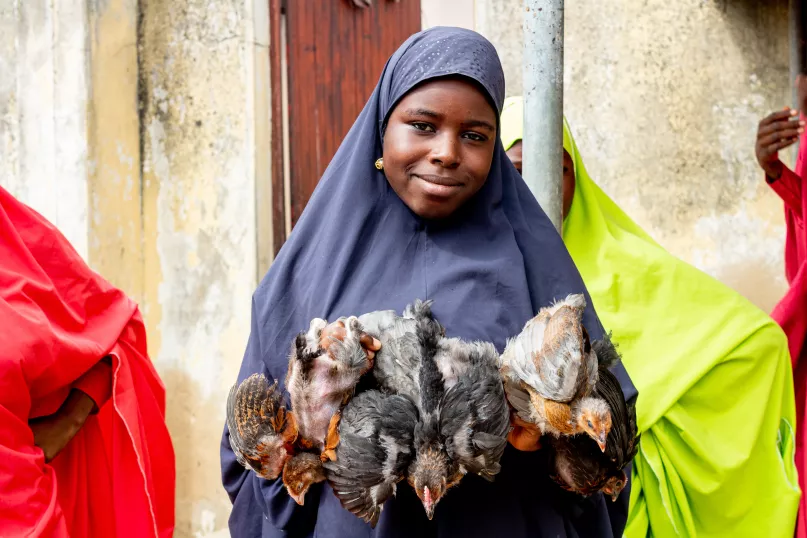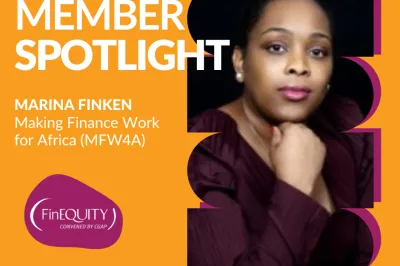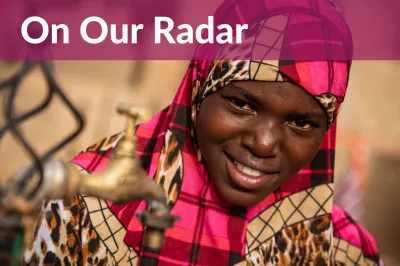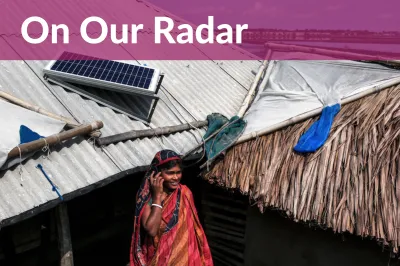Can Livelihood Interventions Do More Than Build Economic Resilience in Crisis Contexts?

Yes!
(Pssst…If you prefer to listen to what we are about to tell you, you can do so in this webinar; if you prefer more detail, read this case study).
Does that surprise you? Honestly, it surprised us too! When we went to Northeast Nigeria in March 2020 to speak to women participants of a poultry livelihoods program, we were primarily interested in understanding how the poultry inputs and savings group interventions (Village Savings groups or VSLAs) had helped women earn income, save and access loans to improve their economic well-being. But nearly all the women we spoke with talked instead about how the poultry livelihoods had increased their self-esteem, confidence and aspirations, and how the program had changed men’s perceptions of women’s economic contributions toward the household and made household financial decisions more equitable between men and women. While we were still dealing with our surprise, the women added that the program had helped them strengthen and diversify their social connections - specifically the bonds of trust and solidarity among women participants. These indicators we'd effectively stumbled on are what researchers call “social resilience” capacities.
Social capacities include not only social dimensions such as the strength and diversity of women’s social networks, but also psychological capacities like women’s self-esteem, self-worth, agency, confidence in the future, etc.
What does that mean and why does it matter? Social capacities include not only social dimensions such as the strength and diversity of women’s social networks, but also psychological capacities like women’s self-esteem, self-worth, agency, confidence in the future, etc. There is now growing recognition that social capacities are important predictors of if (or if not) an individual will be able to escape poverty traps and recover from shocks and stresses along the way–all of which are also the goals of an economic intervention.
Ok, social capacities are important. But how can livelihood interventions bolster them?
A recent FinEquity blog talks about how women’s groups such as self-help groups and savings groups like VSLAs improve not only economic outcomes but social capacities for women as well. In our case, since the poultry inputs program also mobilized women into VSLAs to help them access cash and capital for their livelihood expansion, the social capacities that women talked about should come as no surprise.
From our discussions with female participants, we gleaned that the .
Here's how:
The program approach: Women’s participation in the program was through a promotional “buy one, get one free” offer. Women had to invest a small amount of their own money to buy their first stock of chickens. But for every chicken that women purchased, they received one chicken (and one month of poultry feed) free. This shifted women’s mindsets from that of an “NGO beneficiary” to a poultry business owner. Not only did this motivate women’s continued engagement in their livelihood, but it also increased their sense of pride, dignity and self-esteem.
Choice of interventions: Women got to know other women in their community through the weekly VSLA meetings. The shared poultry livelihood among women VSLA participants was an important starting point for women’s interactions during meetings. Women shared advice and guidance on their achievements and challenges in expanding their poultry business and building life skills. The trust and bonds from these economic interactions turned into exchanging emotional advice. For women, simply knowing that others were “there for them” not only improved their psychosocial wellbeing, it also meant that women became invested in each other’s success. Women helped each other diversify into other livelihoods including by connecting one another to their friends/family in other parts of Nigeria to start a livelihood.
For women, simply knowing that others were “there for them” not only improved their psychosocial wellbeing, it also meant that women became invested in each other’s success.
Program design: Based on the program’s assessments the team purposefully selected hybrid poultry since poultry breeding is a common and culturally acceptable livelihood for women that can be done from home without increasing the burden on women’s already limited time. The program partnered with a hybrid poultry provider in Nigeria who already had a network of feed providers and veterinary services across the country. Women were not seen as creditworthy and faced barriers in accessing loans from non-family members, mobilizing women into VSLA groups meant that women now had a “shame-free” source of cash to meet their household and livelihood needs.
So, what implications does all of this have for program design?
We can think of at least three, immaterial of context.
#1: “Beneficiary” or “participant”? It’s not just semantics. Think about the ways vulnerable individuals can truly participate in the program. As this program demonstrates, approaches that encourage participants to invest a part of their own money in the livelihood inputs can be far more meaningful and beneficial than a handout.
#2: Design livelihood programs around women’s - and men’s - specific needs. Remember crisis contexts impact men and women in different ways. If your program plans to work with women, identify livelihoods that are contextually appropriate and can more easily foster women’s engagement.
#3: Your livelihood program may be doing a lot more than providing economic benefits. Asking participants open-ended questions particularly on what they perceive are the non-economic benefits of a livelihood intervention may lead to some good and surprising discoveries on important social capacities that women rely on to cope with setbacks big and small.


